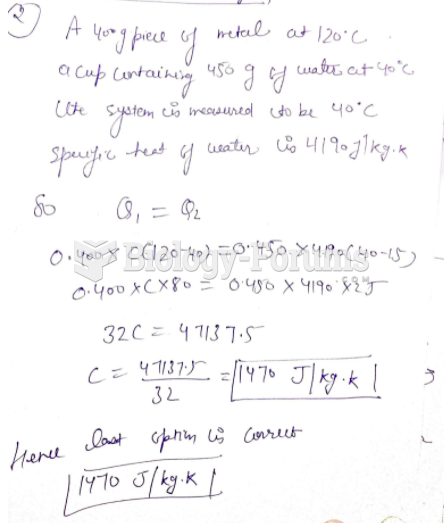Water vapor is a colorless, odorless, tasteless, invisible gas that mixes freely with the other gases of the atmosphere. We are likely to become aware of water vapor when humidity is high because the air feels sticky, clothes feel damp, and our skin feels clammy, or when humidity is low because our lips chap and our hair won't behave. Water vapor is a minor constituent of the atmosphere, with the amount present being quite variable from place to place and from time to time. It is virtually absent in some places but constitutes as much as four percent of the total atmospheric volume in others. Essentially, water vapor is restricted to the lower troposphere. More than half of all water vapor is found within one mile (1.6 kilometers) of Earth's surface, and only a tiny fraction exists above about four miles (6.4 Kilometers).
a. Water vapor is responsible for most of the abrupt weather changes on the planet.
b. Water vapor is colorless, odorless, tasteless, and invisible and is the reason we feel sticky and damp on certain days.
c. Water vapor is a colorless, odorless, tasteless, and invisible gas, mixes freely with other gases of the atmosphere, and constitutes up to four percent of the lower atmosphere.
d. Although water vapor is confined mostly in the lower atmosphere and varies from place to place, it is a very stable part of the atmosphere.
Question 2
World War II was the most terrible war in history. Military deaths are estimated at some fifteen million, and at least as many civilians were killed. If deaths linked indirectly to the war, from disease, hunger, and other causes, are included, the number of victims might reach as high as forty million. Most of Europe and significant parts of Asia were devastated. Yet the end of so terrible a war brought little opportunity for relaxation. The dawn of the atomic age and the dramatic end it brought to the war made people conscious that another major war might extinguish humanity. Everything depended on concluding a stable peace, but even as the fighting ended, conflicts among the victors made the prospects of a lasting peace doubtful.
a. The dawn of the atomic age made people around the world conscious of the horrors of war.
b. World War II was the most terrible war in history.
c. World War II, with deaths in the millions in fighting and indirect causes, as well as the devastation of countries, did not bring peace because of conflicts among the victors.
d. The dawning of the atomic age, plus the consciousness of the people, assured us that World War II would be our last large scale war.







